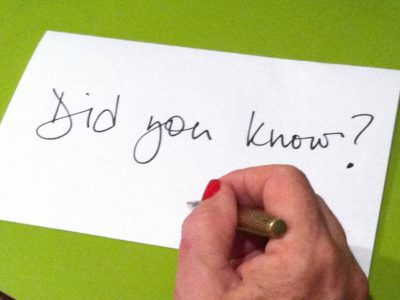Sadly, there will come a time in your life when you lose a loved one or someone very dear to you. People offer their condolences to family members in memory of the deceased, generally while attending a funeral or memorial service, or simply visiting them at home to remember the deceased and to offer their assistance in any way.
Here is how to respond to sorry for your loss:
- Thank you
- That’s very kind of you
- Thank you for thinking of me
- Thanks for your support
- Thanks so much
- Your sympathy means a lot
- Thank you for reaching out
- Your words have helped me
- I’m sorry for your loss
- Don’t be sorry
After losing a loved one, there is not much that anyone can say to you to console you, but people do care and are perhaps also feeling the loss of a friend or colleague. While they are not trying to make you feel better, they are trying to stand by you to let you know that you are not alone during this challenging time in your life. Although it’s not necessarily a requirement, basic etiquette requires that you acknowledge their kind words of condolences, even if you don’t always know how to respond to “sorry for your loss.”
10 Things To Say In Response To “Sorry For Your Loss.”
Most people care and are genuinely sympathetic when offering their condolences after the loss of a loved one. So, how do you respond to sorry for your loss? Do you smile and wave, or is it more appropriate to respond to each person with a personal message?
You may know some people offering sympathetic messages, but others could be strangers to you who were acquaintances of the deceased. It is often easier to respond to someone you know, but it is slightly more challenging when replying to a stranger.
There are different ways to respond to sympathy messages. You could reply face to face, or perhaps you have received a text message, a card, or even a letter, which needs a response. Replying face to face is often the best option as you can respond immediately when the sentiment is offered without having to think about a reply.
Only respond to written messages when you feel up to replying. A heartfelt note from you should express your thanks and perhaps a personal message to the recipient.
Here are our 10 top ways on how to respond to sorry for your loss.
- Thank you. This is perhaps the best and most simple response, indicating that you have heard the sentiment that the other person is giving to you. You are not expected to offer anything else when grieving.
- That’s very kind of you, thank you. A simple way to respond, especially if you don’t know the other person very well.
- Thank you for thinking of me; it means a lot. Showing gratitude acknowledges that you have heard and received the good wishes sent your way. A quick way to recognize someone that you don’t know or are not too close to.
- Thanks for your love and support; I truly appreciate it. Your warm response can give the other person comfort.
- Thanks so much; I know he/she is in a better place. If you can, share your feelings about the deceased with others.
- Your sympathy means a lot, thank you. A short response to let the person know that you are grateful for their words of sympathy, without trying to offend anyone.
- Thank you for reaching out. No one enjoys funeral services, so let others know that you appreciate them and their presence.
- Your words of comfort and kindness have helped me through this. Thank you. This is a perfect response when you don’t feel that you can say very much.
- Thank you, I know this must be hard for you too; I’m sorry for your loss. Others who were close to the deceased are also feeling the loss and could be experiencing some of the hurt you are feeling, so acknowledge their pain.
- Don’t be sorry; she lived a full life and wouldn’t want us to be sad. Remember her with joy. Others have good memories, too, so share your stories, listen to what they have to say, and remember.
Do People Mean It When They Say It?
Most of us don’t know what to say to someone who has just suffered an unimaginable loss, and scramble for something appropriate to say without sounding too distant. Although saying “sorry for your loss” might not always be a fitting sentiment to use, it is an acceptable phrase to speak to a grieving person who has lost a loved one.
Condolences are offered by way of sympathy, generally to a loved one of the deceased. As long as you are genuine and truly mean what you say, then do offer any words of comfort that you think is appropriate at the time.
If the person has taken the time to send a message of condolence to the loved one, it is generally a genuine message, even if it is a quick text message. Most people genuinely mean what they say when remembering the deceased.
Hearing warm, sympathetic words of encouragement is heart-warming to the loved ones of the deceased. Likewise, remembering the person and hearing fond memories from others aids the healing process.
If the loved one knows you and the relationship you had with the deceased, the words will always be well received.
If you are an acquaintance of the deceased and unknown to the grieving loved one, then your words and presence offer comfort to the loved one. Knowing how loved and respected the deceased was by many people are comforting to the loved ones.
A Simple Nod Is Enough Sometimes

Sometimes, a simple nod is enough to acknowledge a comforting word of condolence from someone else. A simple nod tells you that your message has been received, and your words of comfort are appreciated.
Often the loved one is terribly upset at the loss and cannot reply verbally to everyone who sends a message their way. By nodding in your direction, they can contain their grief for long enough to get through the very distressing next few days or weeks of their lives without their emotions clouding their judgment.
There are always many tough decisions to be made following the death of a loved one. So often, the family member can become overwhelmed by feelings of grief and loss and the unknown future and planning for the arrangements that need to happen.
A simple nod is often the best way for the loved one to cope with the etiquette demanded by society at a very distressing time in their life. But, sometimes, it is hard for the loved one to speak because of the depths of the grief felt by him, and words are hard to say at that moment.
Conclusion
How we respond to a word, text, or letter of sympathy is entirely up to us. Unfortunately, we don’t know how we will respond or carry on with our lives after losing a loved one until it happens.
Allowing yourself time to heal is more important than replying to messages, although receiving messages from others can be comforting. While the rules of etiquette demand a response to the welcome, well-wishes, and condolence messages of others, replying to each and every message can often be more painful for the loved one who is grieving the loss.











